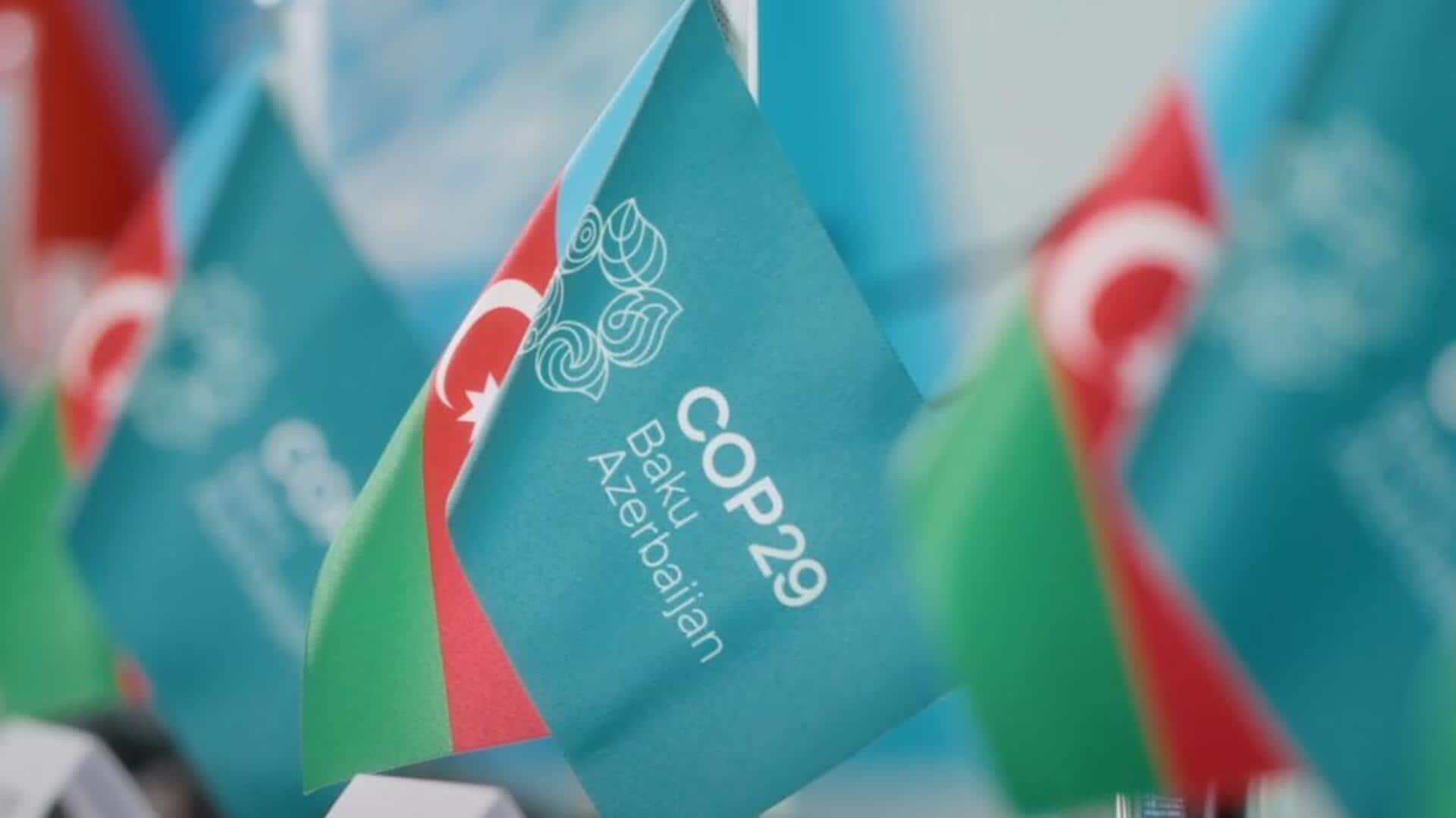
COP29 deal increases funding for poorer nations' clean energy transition
What's the story
The latest United Nations (UN) climate talks (COP29) in Azerbaijan have ended with a historic $300 billion deal. The Baku accord requires developed countries, historically responsible for most planet-heating emissions, to pay at least $300 billion every year by 2035 to help poorer countries transition to cleaner energy and adapt to global warming. The commitment is a significant rise from the current $100 billion/year requirement under an existing deal expiring next year.
Financial strategies
Funding sources and ambitious goals
The Baku accord states that the funding will come from a "wide variety of sources" such as government budgets, private sector investment, and other financing. The deal also refers to "alternative sources," hinting at possible global taxes on the aviation and maritime industries and the rich. The end goal of these funds is to catalyze private investment to reach an ambitious target of delivering at least $1.3 trillion/year by 2030.
Donor expansion
China's role and voluntary contributions
The US and EU have pushed to broaden the donor base to include now-wealthy nations such as China and Saudi Arabia, which still remain developing. However, China has repeatedly refused to change its status while emphasizing its current bilateral aid. The Baku accord suggests that developed nations will "take the lead" in contributing the $300 billion but also "encourages" developing countries to make "voluntary" contributions.
Allocation disputes
Disagreements and future prospects
The Baku accord has led to disagreements in the developing world. The Least Developed Countries bloc asked for $220 billion/year, while the Alliance of Small Island States asked for $39 billion—demands opposed by other developing nations. These numbers didn't make it to the final deal, which calls for tripling other public funds they receive by 2030. The next COP, due in Brazil in 2025, is expected to issue a report on enhancing climate finance for these countries.
Agreement shortcomings
Fossil fuel transition and monitoring efforts
The Baku accord has faced criticism for not explicitly promising to "transition away" from fossil fuels, a commitment made at COP28 in Dubai. The European Union's priority of agreeing to annual monitoring of efforts to move away from oil, gas, and coal did not make it into the final agreement. This omission has been attributed to opposition from countries like Saudi Arabia.